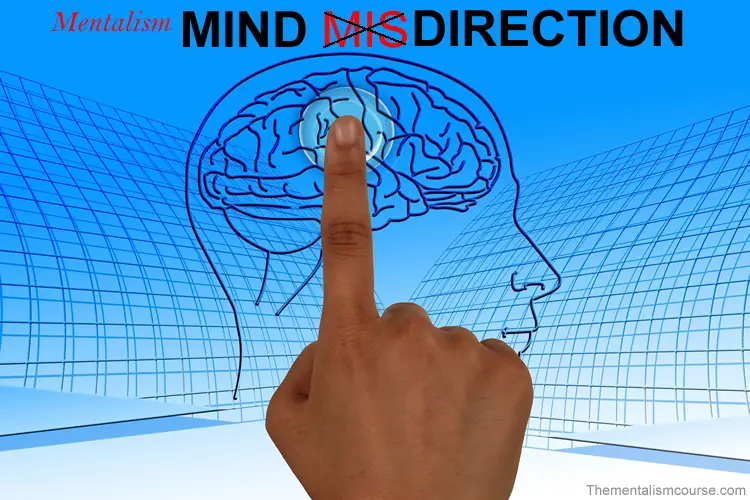What is a mentalist and what do they do?

If you’re like me then mentalism will intrigue you. They play mind games which leave you wondering how they did what they did! So what’s really behind how mentalists do what they do? Let’s take a look…
What is a mentalist and what do they do? A mentalist is a performing artist who performs mentalism. Mentalists play mind games with their audience using techniques that appear as if they are reading minds. Performances also give the illusion they are clairvoyant and by using clever mind games their audiences can believe they are mediums or somehow telepathic.
What is a mentalist and what do they do in more detail?
The term Mentalist became more known from the American drama series The Mentalist with Patrick Jane. But this post isn’t about Patrick Janes as such, but is is about performing mentalists like Derren Brown or Lior Suchard. The similarity between this successful Hollywood series and a mentalist that performs mentalism on stage is having regard to their acute powers of observation and mind control.
Mentalism involves understanding and observing body language. Certain mentalist ‘tricks’ require reading the ‘subjects’ body language. This will provide clues for the mentalist to arrive at a predetermined and chosen outcome.
However, in the video below Patrick Jane demonstrates mentalism in it’s simplest form.
Did you work out how he did this?
For those of you who couldn’t work out how Jane directed (or misdirected) his colleague, the answer can be found on a link to a separate page below.
But before you click to the answer, watch the video a few times. See if you can work it out yourself.
Learn how to become a mentalist in this master mentalism course – Learn mentalism in just 30 days!
Let me put it this way, the answer will be staring you in the face. His misdirection will be so obvious once you know, that you’ll wonder why you didn’t spot it beforehand. Which is what mentalism, and magic for that matter, relies upon.
Mentalism Trick Revealed – How did Patrick Jame get his colleague to say a triangle inside a circle? Click here for the answer
How did Patrick Jane misdirect his colleague?
If this is the beginning of your journey into mentalism, then this very simple ‘trick‘ or misdirection will open your eyes to how a mentalist works his ‘magic.’
Misdirection is a technique that is broadly defined as manipulating people’s attention, thoughts, and memory. Or in other words, doing what you want them to do. Against their will? Maybe or maybe not?
In the American drama series Patrick Jane puts his mentalist skills to work with the CBI. Whereas a mentalist in this context is a performer. Or should I say my mentalism blog is about how to become a mentalist performer.
This will help guide you to become a performer, either as a part-time hobby or with a long-term goal of becoming a professional mentalist on stage.
More Reading: Master Mentalism Course review (Includes the features and the Pros & Cons)
Mentalists are performing artists
Mentalists are preforming artists and include the likes of Derren Brown. Derren Brown is classed as an English Mentalist and an illusionist. If you haven’t already seen him perform on stage, I recommend you go to one of his shows.
Performing mentalism and magic, as with all types of performance, is then down to confidence. Where confidence is built out of experience, practice and repetition.
I’ve experienced mentalists at work a few times, as I’m sure you have. Once of which was Derren Brown, but he wasn’t the first mentalist I experienced.
Without fail their ‘magic‘ and ingenious mind-work never ceases to amaze me. This is what peaked my interest to start this blog, along with a keen interest in psychology too.
What is mentalist theory?

The theory behind mentalism, or the psychology behind it, is about how the human brain can be misdirected. Misdirection is central to magic and mentalism.
Although, if you look at the definition or meaning of ‘misdirection, this is ‘the action or process of directing someone to the wrong place or in the wrong direction.’
When in fact a mentalist actually directs you to the ‘right place,’ or the right place for their mind-game to work. But the ‘mentalists right place’ is not you necessarily the right place for you.
You will have been deceived. You will be left wondering how he did what he did. The mind-game is usually so clever that you will either be convinced the mentalist has read your mind or has psychic powers. Which they don’t have.
Mentalist theory taps into the brain psyche. I always remember one of the first times I was ‘misdirected‘ with mentalism. In this instance, I was ask to choose a number between 1 and 100. If my memory serves me correctly, the number I chose was 86. Although the actual number I chose is not important for this story.
I remember my brain having an internal dialogue about my choice of 86. I recall a tussle in my mind about wanting to change it to something else. However, I felt compelled to say the first number I chose. Which is what I did.
The number 86 that I chose (or should I say had been directed to choose) linked to what the other chosen volunteers from the audience had been (MIS)directed to do or say.
These various choices and decisions eventually led to a grand finale. Of course we were all stunned at how the finale work out. Questioning how he’d done it.
Mentalist theory relies on a person’s attention
Mentalist theory relies on a person’s attention. Where attention is defined as the process by which we select a subset of available information, while filtering out the rest.
Our attention plays a critical role in determining what (and how) we perceive about ourselves and the environment.
The theory behind how a mentalist works is about how they ‘command’ your attention. They use your ‘focus’ to misdirect that attention by encouraging your brain to select the information they want you to select, whilst filtering out the rest.
Hence the famous saying: “We only see that to what we pay attention.” Of course a mentalist will make sure they have your full attention. This way they are able to misdirect you., or direct you to the ‘correct‘ answer.
Mentalists take advantage of your perceptual processes. These perceptual processes include the attention and awareness or their audience. They use this ‘mind-control‘ or control of your attention to manipulate the conscious experience during a mentalist or ‘magic’ trick.
The psychology behind this is the subjectiveness of perception. Which means that our brains can be tricked.
Our brains are constantly making sense of the environment we are in. The brain is looking for clues via it’s most powerful sense, which is sight.
What are the traits required to be a mentalist?
Looking at the top performing mentalists like Derren Brown, It would appear that the number one trait for a mentalist is obsessive behavioural tendencies.
Top traits required by mentalists:
- Possess great observational skills.
- A good ability for decoding in communication.
- To have an obsessive tendency.
- Confidence.
- Good sense of humour or an ability to make people laugh.
- Patience.
Let’s take a look at each of these in more detail.
1. Possess great observational skills are key to becoming a mentalist
All mentalists must have the ability to observe things down to minute detail. This can include looking for physical cues in others that will give away information.
This can include observing the dilation or constriction of their eye pupil. Or perhaps where they shift their eyes to when they speak and what they place their hands on their body.
It’s about having a unique ability to be a great observer of body language and being able to interpret what is being said.
2. A good ability for decoding in communication
Decoding is the process of decoding communication into thoughts. This ability is a key attribute to have for mentalists, as it allows them to turn what they observe in terms of body language, into thoughts about they person they are observing.
3. To have an obsessive tendency
Being an obsessive helps with one of the elements of ‘confidence in the performance,’ which is the ability to practice and repeat. Obsessive people are perfectionists and are more than happy to repeat the same action over and over until the outcome is certain. Where the outcome is ‘perfected.’
For example, Derren Brown has revealed that he is prone to a strange affliction of tics, rituals and other patterns of obsessive behaviour. As a child he had a compulsion to knock his knees together. As a teenager he performed a ritual to avoid the top flight of any set of stairs, whereby he’d sniff loudly and violently.
Also, if you observe him carefully on stage he has a tic where he nods his head repeatedly.
This trait is beneficial to Brown’s and other mentalists mentalism techniques for them to perfect new tricks through repetition and practice.
4. Confidence
To be able to perform in front of people you need to be confident.
However, confidence is gained through experience and getting up and doing something. Of course the very first time you do anything you’re going to lack confidence and even be nervous. But if you do the same thing several times, you will get good at it and gain confidence.
We need certainty, and experience gives you that certainty, which in turn is going to give you the confidence. To get the experience you need to provide the certainty is about going out and doing it. You must go out, try it, test it, fail at it, then start again.
4. Good sense of humour or an ability to make people laugh
If you watch most performers they all tend to have a good sense of humour. They bring humour into their tricks and mind games.
A big part of any act or performance is the build up. Many times, the act itself may be very short and brief or you could do the trick in a very short space of time. However, it’s always good to add a bit of drama and throw in comedy, as people always like to laugh.
This helps to build rapport between you and your audience too.
5. Having patience
To get good at anything new takes time and repetition. Repeating something and getting it right will take patience.
If you would like to learn how to do amazing mentalist tricks that will make your friend’s jaw drop, look at the Master Mentalism course.
Master Mentalism is an in-depth course that will show you the secrets behind most of the popular mentalist magic tricks there are.
In just a short time after learning from Master Mentalism you will know exactly how mentalists do what they do!
For a ridiculously small investment on your part you will be learning some fantastic mentalism and magic skills. These skills will not only make you the life of a party, but they will set you on your way to become the next famous mentalist!
I hope you enjoyed this article about what is a mentalist and what do they do
I’d love to hear from you. Tell us about your journey to become a performing mentalist or magician (or both). Please comment below. Please also share your experiences, both good and bad.!
If this article hasn’t answered all of your questions. If you have more questions either about mentalism or magic, I will try to answer them (or specifically about what is a mentalist and what do they do), please comment below with your questions.
There will also be many more articles about mentalism for you to read and learn about this fantastic skill.
Have fun and enjoy your journey!

Good
Hello Bhumika, thank you for your very short comment. Is it you’re saying the post is good?